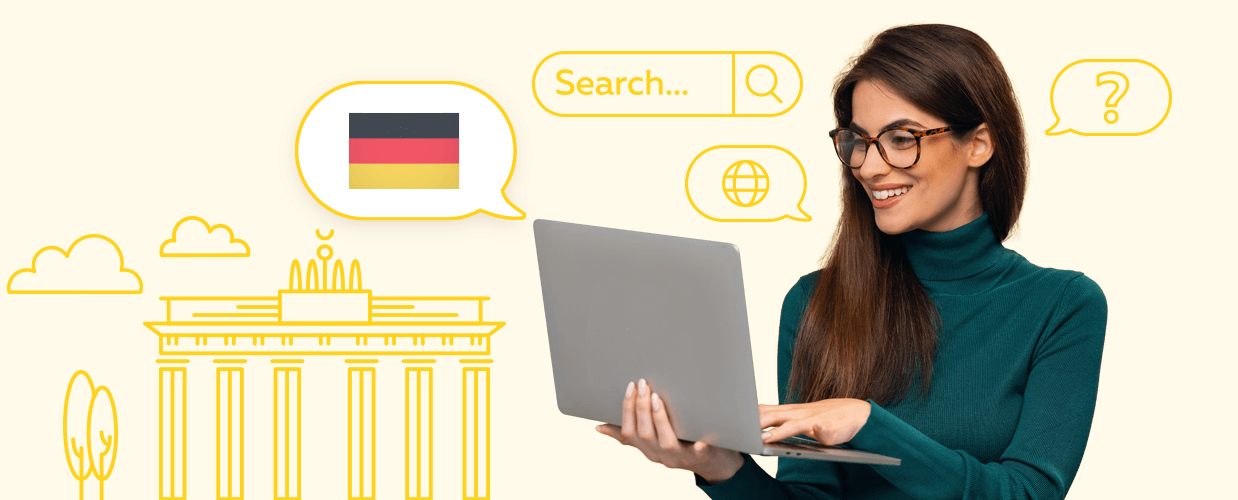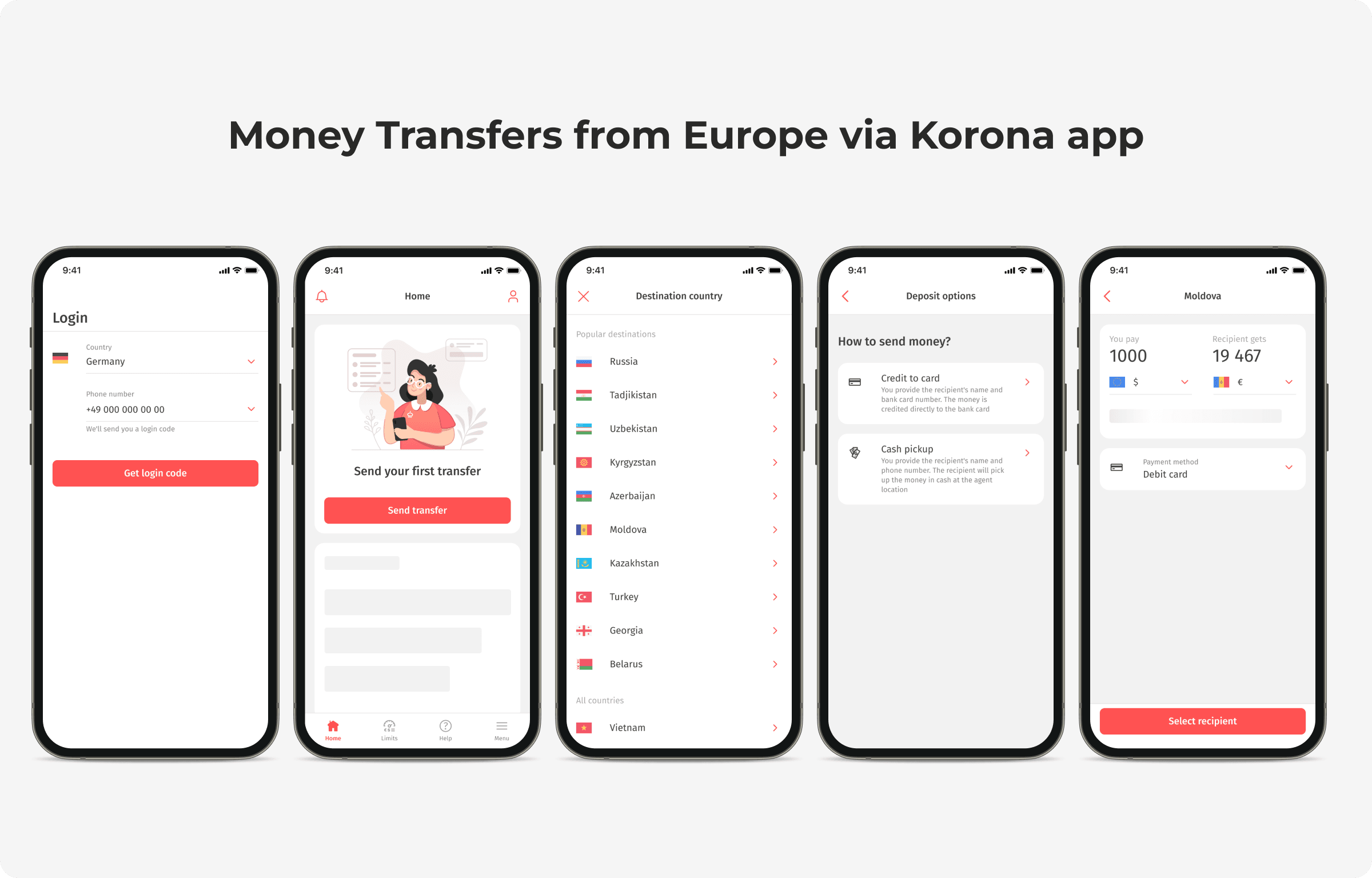Important Resources to Aid Migrants in Germany
Integration and adaptation of foreign workers are key aspects of the migration policy of the Federal Republic of Germany (FRG). Numerous national, regional, public, and volunteer organizations are involved in implementing these measures. This article provides a brief overview of the most useful resources for immigrants.
Previously, we discussed the best cities in Germany for foreigners to live and work.

Bundesamt für Migration und Flüchtlinge (BAMF)
One of the most critical resources for foreigners in Germany is the website and hotline of the Federal Office for Migration and Refugees. You can contact them for any questions related to integration, repatriation, family reunification, and asylum seeking. The specialists help navigate German bureaucracy, assess specific situations, and propose scenarios to resolve issues with documents, housing, or employment.
BAMF organizes courses focused on language acquisition, integration into education, work, and society. The goal is to familiarize foreign citizens with social life in Germany and engage them in it. The agency aims to interest young foreigners in education—as per the Federal Institute for Vocational Education and Training (BIBB), about 17% of young people aged 20 to 34 lack qualifications, including legally residing migrants.
BAMF Courses in Germany
Each integration course consists of a language and orientation part. It is recommended to attend classes in person. To participate, you must apply to the regional office of the Federal Office for Migration and Refugees (Bundesamtes für Migration und Flüchtlinge). The initial integration course is free (except for foreigners who already have a residence permit and EU citizens who have moved to Germany, where the cost is €2.29 per lesson).
Language Part
This lasts from 400 to 900 lessons and is intended for foreigners with poor German skills. It covers essential everyday topics such as work, education, childcare, shopping and trade, social contacts, leisure, and media usage.
Students learn to write letters, fill out forms, make phone calls, and submit resumes in German. The range of topics varies depending on the type of course the foreigner attends. For youth integration classes, topics of interest to the respective category of students, like university applications, are covered.
At the end, the student takes the “German for Immigrants” (DTZ) exam. The course is considered successfully completed if the student demonstrates B1 level skills.
If a diligent student does not achieve B1 level, they can apply for an additional 300 lessons free of charge.
Orientation Part
After completing the language course, students attend the orientation part (about 100 lessons). Here, foreigners are taught:
- Basics of German history and culture
- Germany’s legal system
- Features of social life
- Values important in the country
The course concludes with the final test “Life in Germany.”
For those not yet in the country, Goethe-Institut specialists run the pre-integration project “Life and Work in Germany.” The course is available in select countries, details can be found on their website.
Handbook Germany
The Handbook Germany: Together project positions itself as the first online contact for foreigners. It combines an information platform with articles on relevant topics for migrants, the community platform Together-in-germany.de, and the support offer search system Local Information.
All information is available in nine languages: German, Farsi, English, Pashto, Turkish, French, Arabic, Ukrainian, and Russian.
Financial Support for Migrants in Germany
Foreigners meeting the requirements can receive financial assistance:
- Unemployment benefits are available to citizens of the European Union, European Economic Area, and those with a residence permit.
- Citizenship benefits are available to citizens who are self-employed or employed and come from the EU/EEA or a third country that grants such rights.
- Child benefits are available to EU/EEA citizens, residents, or refugees.
JobCenter: Training, Benefits, and Employment Assistance
JobCenter helps foreigners aged 15 to 65-67 with employment, qualification enhancement, and language learning if the migrant has not previously worked in Germany or worked for a very short time.
JobCenter can also provide financial assistance, cover rent or utility bills, reimburse the cost of diploma recognition, or fund advanced training courses.
These employment centers are present in all German states, and you should contact the nearest one to your residence.
Do not confuse JobCenter with Arbeitsagentur—the federal employment agency. Foreigners who have already worked in Germany and paid insurance contributions for at least 12 months apply here. We will discuss this next.
Finding a Job in Germany
The German economy needs skilled workers. It is not necessary to be from the European Union to secure a good job in Germany. The Skilled Immigration Act of March 29, 2023, and the Blue Card are two options that legalize non-EU nationals in the local labor market.
You can find a job in Germany in advance and enter with a work visa or use a job-seeking visa issued for several months.
The Federal Employment Agency (Bundesagentur für Arbeit) assists foreigners arriving from abroad. On www.arbeitsagentur.de, foreign citizens can:
- Use the job and internship search and view offers on the largest job portal, including seasonal work in Germany
- Find information and enroll in German language courses
- Learn how to validate foreign qualifications
- Request assistance in recognizing a diploma in Germany through the Anabin database
- Obtain information on documents needed for access to the labor market and contacts where they can be obtained
The Employment Agency’s Foreign Specialist Placement Service (ZAV) will answer all questions about working in the country, help ensure qualifications meet German labor market requirements, and provide access to jobs and social security.
ZAV specialists in Germany will strive to help a foreign citizen find employment. Contact one of the 150 employment centers or 600 branches.
Another way for foreigners to find employment is through EURES (European Employment Services). This network covers all of Europe and collaborates with trade unions and employer organizations. On the EURES portal, one can:
- Browse job vacancies in Germany
- Find useful information about employment in the country
- Get details about available social security, taxes, and labor laws
- Create an applicant profile with a resume
A personal account on the EURES portal is visible to registered employers, increasing chances of successfully finding a job. EURES can also provide financial support in some cases. Find a consultant contact for your region on the website.
Another option is to independently browse job listings on specialized job search websites in Germany. It is best to use German, although some employers post vacancies in English.
Healthcare for Immigrants
Foreign citizens arriving in Germany can rely on the German healthcare system. A guide to it is available in the digital brochure “Health for All” in several languages. Visit the “Migration and Health” portal for publications and materials on medical topics.
The portal provides comprehensive information on where to go in case of illness, inpatient and outpatient care, emergency procedures, and available preventive measures and vaccinations. It also contains data on mental health support and addiction treatment.
Other Online Resources for Legalization in Germany for Foreigners
Migrationsberatung für erwachsene Zuwanderer (MBE)
The Migration Advisory Service for Adult Immigrants is for all foreigners planning to reside permanently in Germany. MBE offers support on all matters either independently or by referring to competent authorities and services.
In the Mbeon app, immigrants can consult MBE advisors in 40 different languages. Staff help solve problems related to:
- Learning German
- Education, including diploma recognition
- Housing
- Health
MBE provides all necessary resources and agencies immigrants need to contact to achieve desired results. Consultations are free and available anytime.
An analogous resource for people aged 12 to 27 is JMD, the Youth Migration Services.
Legal Assistance for Foreigners in Germany
Local advisory centers help navigate the legal system of the new country. You can seek advice from:
- International Catholic charity Caritas
- Rechtslife München
- Pro Asyl
- Kontakt-und-Beratungsstelle
In many federal states, foreigners have access to local advisory centers of various legal organizations. Usually, assistance is provided free of charge.
Money Transfers from Germany
A reliable money transfer app, like Korona, can be a useful resource when relocating and integrating into another country.
Korona allows sending money from Germany to over 50 countries at favorable rates. The app’s interface is simple and user-friendly, and transfers take no more than 5 minutes.

Download the Korona app from the App Store and Google Play.
We write extensively about living and working in European countries in our blog. Follow the link and read more if this topic interests you.
